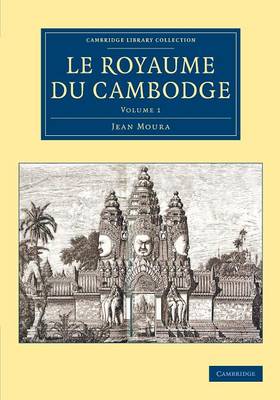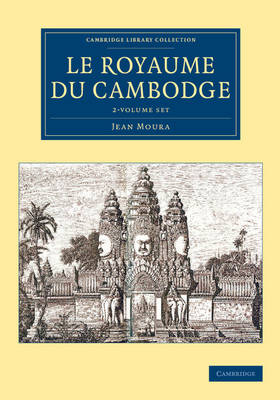Cambridge Library Collection - East and South-East Asian History
1 primary work • 2 total works
Volume 1
In 1868, Jean Moura took up the post of Administrator of the French protectorate of Cambodia, established the previous year by invitation of the country's rulers who wanted freedom from Thai control. Apart from a short break in 1870, Moura stayed in his post at Phnom Penh until 1879. The foreword describes Moura's determined efforts to find out about every aspect of Cambodian history and culture, and explains how on his return to France he prepared this two-volume, illustrated reference work. Published in 1883, it was announced as the first serious study of Cambodia, indispensable to those wishing to seek their fortune in this most beautiful of French colonies. Volume 1 begins by describing Cambodia's geography, geology, natural resources and agriculture. Moura then discusses topics including exports and trade, the layout and architecture of towns, religion, administration and law, language, literature and education, and the customs of Cambodia's different ethnic groups.
In 1868, Jean Moura took up the post of Administrator of the French protectorate of Cambodia, established the previous year by invitation of the country's rulers who wanted freedom from Thai control. Apart from a short break in 1870, Moura stayed in his post at Phnom Penh until 1879. The foreword describes Moura's determined efforts to find out about every aspect of Cambodian history and culture, and explains how on his return to France he prepared this two-volume, illustrated reference work. Published in 1883, it was announced as the first serious study of Cambodia, indispensable to those wishing to seek their fortune in this most beautiful of French colonies. The book is encyclopedic in its scope, covering agriculture and industry, language, literature, religion and society, government and law, history and myth, antiquities, art and architecture. Moura describes various ethnic groups, their customs and beliefs, and includes word lists comparing their languages.

